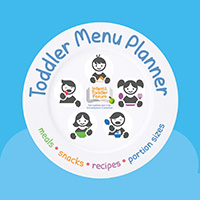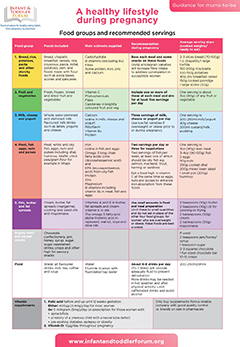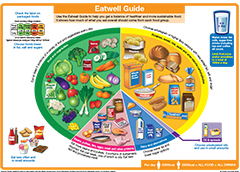
Use our Toddler Meal planning tool to ensure your 1-4 years old receives a balanced diet every day.
Find out more >
Use our toddler food tracker to check that your 1-4 year olds are getting a good balance of foods and activity
Find out more >
This educational programme for frontline professionals contains a range of practical resources on infant feeding.
Find out more >Guidance & Tips for Pregnancy
During pregnancy your diet must provide sufficient nutrients to meet your usual requirements as well as those of your growing baby, but in everyday life it can often be difficult for you to focus on your own eating habits, as it is often hard to prioritise your own needs when you are busy working or looking after young children.
In summary, ensure you include a combination of the five food groups:
- Starchy foods and fruit and vegetables – included at all meals and some snacks
- Milk, cheese and yogurt – three servings per day
- Meat, fish, eggs, nuts or pulses – two to three servings per day including fish twice per week, at least one of which should be oily fish
- Oils, butter and fat spreads- include small quantities in food and meal preparation for essential fatty acids
- Sugary foods and packet snacks they provide few nutrients so include in very small amounts but if you are overweight it is best to avoid them
- Take supplements of folic acid and vitamin D
Non-dairy milks such as those based on soya, nuts, oats, rice and other foods do not provide the same levels of nutrients as cow’s/goat’s milk. Some non-dairy milks such as some soya milks are fortified with calcium however the B vitamin and iodine levels are lower than in cows’/goats’ milk. Therefore, these milks cannot be counted towards the three servings per day of milk, cheese and yogurt. Supplements will be needed to compensate when non-dairy milks are used in place of cows’/goats’ milk. You can learn more about suitable supplements for pregnant women here.
Download and print our chart on food groups and recommended servings for quick reference at home.
Food groups and recommended servings:




